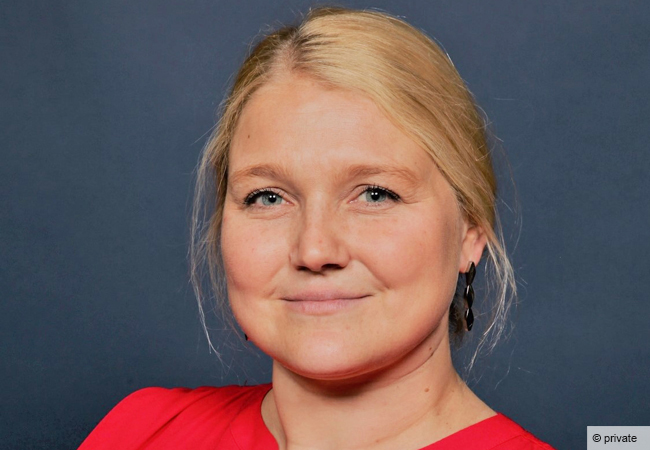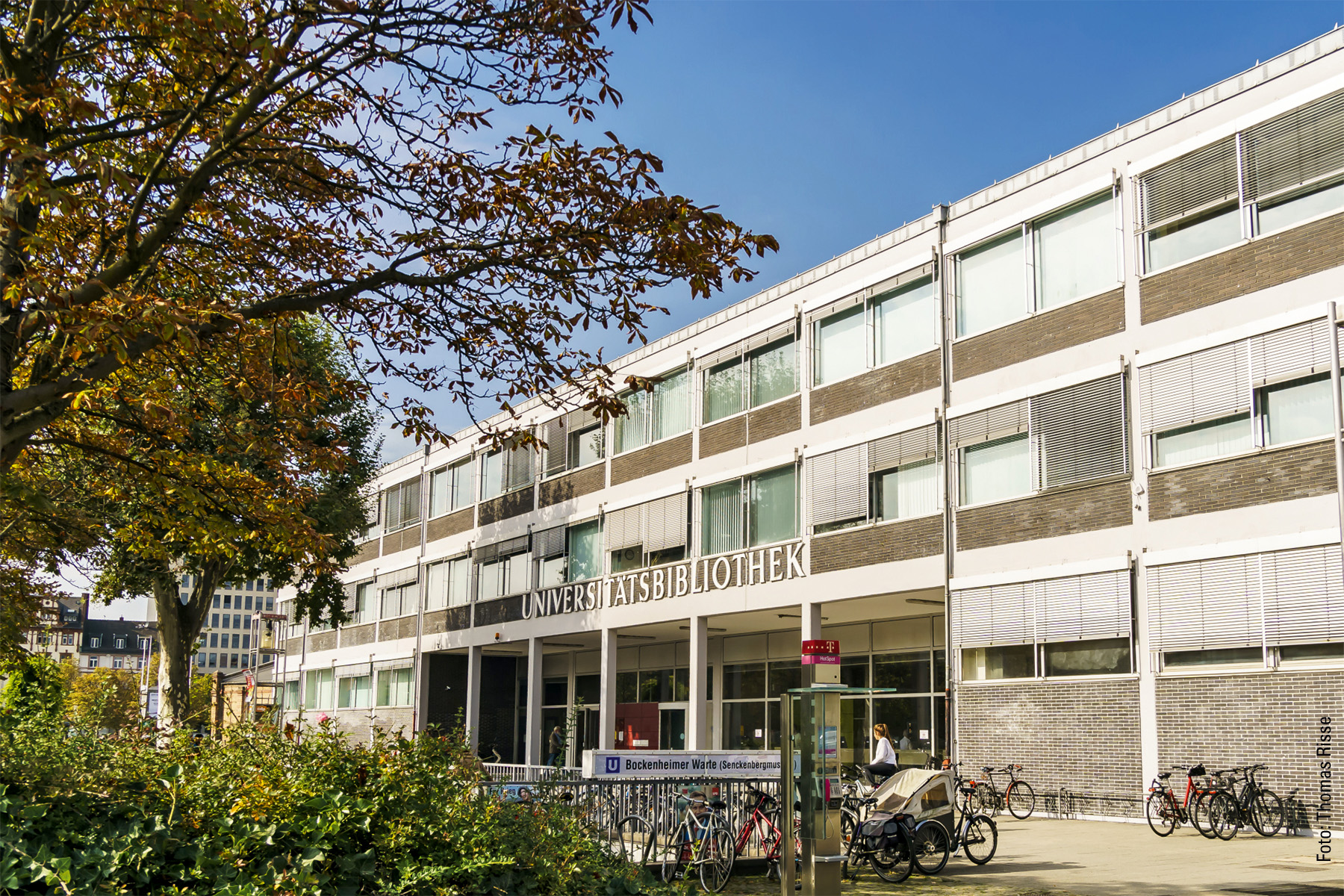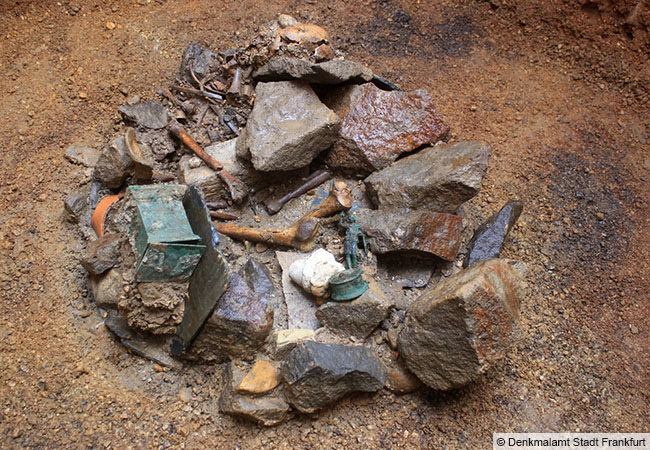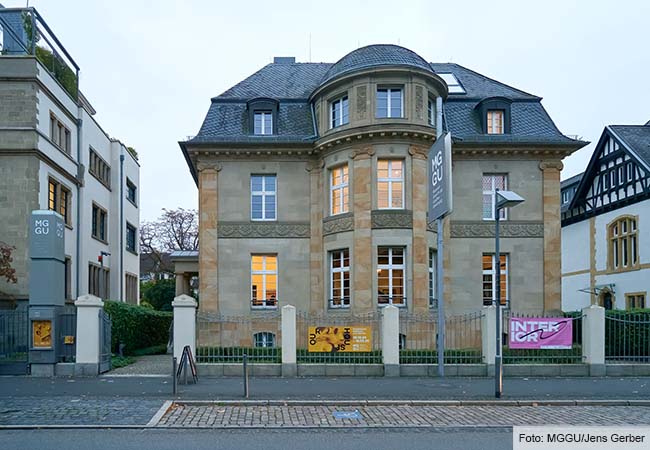Artificial intelligence aids the discovery of new active substances in bacteria
Chemical biologist Eric Helfrich, Professor of Natural Substance Genomics at Goethe University Frankfurt and co-spokesperson of the LOEWE Centre for Translational Biodiversity Genomics (LOEWE-TBG), has acquired a highly competitive European Research Council (ERC) Starting Grant and will receive €1.5 million over the next five years. Helfrich researches natural substances that are produced in bacteria through a combination of enzyme-catalyzed and spontaneous reactions.
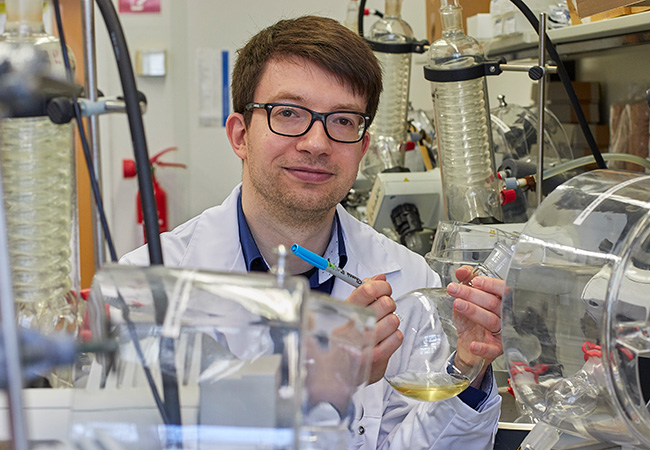
FRANKFURT. Prof. Bernhard Brüne, Goethe University’s Vice President Research, congratulated the scientist: “The awarding of ERC grants is extremely competitive – which is why I am particularly happy for Prof. Helfrich, whose extraordinary achievements in natural product research are being honored in this special way and who can now pursue his pioneering scientific projects aimed at discovering new potential active ingredients in bacteria in the long term.”
Prof. Eric Helfrich’s ERC project “COMBINE” (“Bacterial Alkaloid Biosynthesis off the Beaten Path: Compartmentalization and Non-Enzymatic Transformations in Non-Canonical Alkaloid Biosynthesis”) focuses on how bacteria produce complex biomolecules that constitute the basis of many drugs. These so-called natural substances are formed by multistep enzymatic processes, whereby all the genes coding for these substances are present in the bacteria’s DNA. This is why it is possible to use genome analysis to determine the potential of a bacterium to produce new natural substances.
Eric Helfrich is looking at natural substances that defy this seemingly universal rule, focusing on spontaneous reactions that presumably take place in specially designed reaction chambers within the bacterial cell. Since these reactions are not catalyzed by enzymes whose blueprint is present in the genome, it has to date not been possible to predict them. This is why Helfrich’s team plans to develop indirect AI-based methods to predict spontaneous reactions and characterize the associated novel natural substances. They intend to use these insights into non-enzymatic processes to create a new generation of active ingredients in which two active ingredients are modified using synthetic biology, enabling them to spontaneously fuse into bispecific active ingredients during their biotechnological production.
Established by the European Commission in 2007 to fund basic research, the European Research Council (ERC) has existed under several EU framework programs for research and innovation. It is headed by the Scientific Council, a body composed of leading international scientists and which is responsible for the ERC’s strategic direction.
The ERC’s Starting Grants support excellent researchers in the early stages of their postdoctoral studies, who are seeking to set up their own research team and establish themselves with a promising research project. They receive up to €1.5 million for the projects over a period of up to five years.
https://erc.europa.eu/funding/starting-grants
Background: Prof. Eric Helfrich receives Emmy Noether grant (in German)
https://aktuelles.uni-frankfurt.de/forschung/15-millionen-fuer-naturstoff-forschung-prof-eric-helfrich-erhaelt-emmy-noether-foerderung/
X: @goetheuni | @ERC_Research


